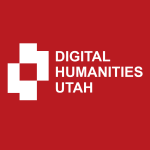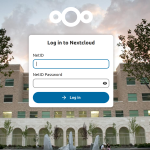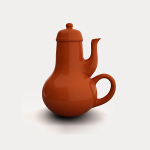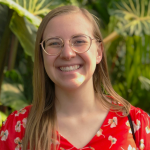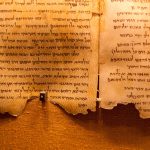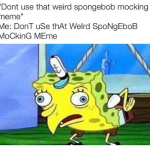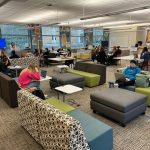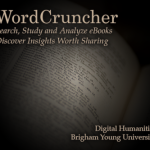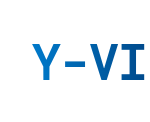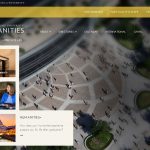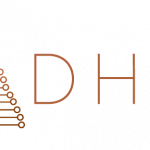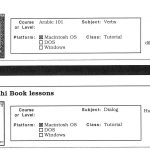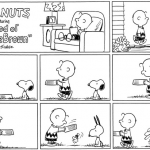Blog
- Y Play Games Returns: Winter 2026 Schedule
- January 9, 2026 /Lauryn Wilde
The Y Play Lecture series returns for the Winter 2026 semester. Lectures take place on Mondays at 4 pm in JFSB B003, except for the week of President’s Day. Head to https://yplay.byu.edu/ for more information about the Y Play Games initiative. Date Game Faculty Lecturer 26 January Super Tecmo Bowl Michael Easterling …
- WordCruncher Makeover: New Website and Logo
- October 9, 2025 /Lauryn Wilde
We are excited to announce that the new WordCruncher website, wordcruncher.com, is live! Check out the new website! New Logo, New Content, New Look Featuring a brand new logo and look, WordCruncher’s updated user guide and other resources are now available via a more user-friendly site. WordCruncher was one of …
- Don’t Miss Out: Fall 2025 Y Play Games Lectures
- September 22, 2025 /Lauryn Wilde
Join us today at 4pm in 1141 JFSB for the first Y Play Games weekly lecture of the semester! If you’re new to the Y Play Games Lecture Series, it’s a weekly event that features a 25-minute lecture about a game. This semester, we’re kicking it off with a lecture …
- (NEW!) The Biblical Hebrew Learning Tool
- August 28, 2025 /Lauryn Wilde
We are excited to announce the newest tool in the Biblical Hebrew Learning Suite: the Biblical Hebrew Learning Tool. The entire Learning Suite offers a collection of interactive resources for all students of biblical Hebrew: (NEW!) Biblical Hebrew Learning Tool: Five modules for studying Hebrew. Hebrew Bible with Analytical Keys: …
- Introducing Dave Barrington, Website Administrator
- July 11, 2025 /Lauryn Wilde
Two months ago, ODH welcomed our new website administrator, Dave Barrington (david.barrington@byu.edu). Dave has done an excellent job continuing the work done by his predecessor, John Cheng, whom we all greatly miss. Hiring changes are bittersweet, but Dave has made the transition easy. As website administrator, Dave is responsible for …
- Don’t Forget Your Users: Call the UX Team
- April 28, 2025 /Lauryn Wilde
When’s the last time that you opened a website and found yourself irritated? You probably had a hard time finding what you were looking for—or couldn’t find it at all. Even though it’s 2025, we still encounter frustrating websites. While some might be plain unusable, the majority of these bothersome …
- Conference Recap: What ODH Did Last Weekend
- February 25, 2025 /Lauryn Wilde
Last weekend, many of us in the Office of Digital Humanities attended the 9th Digital Humanities Utah Symposium at Utah Tech University. Each year, DHU is an opportunity for digital humanities scholars across the state of Utah and beyond to share research and ideas, network, and learn about the application …
- YPlay Games is Back with “Let’s Go, Pikachu!”
- January 31, 2025 /Lauryn Wilde
Video games are a relatively recent phenomenon, but they’re not that new: people have been playing Pong, Tetris, and Pac-Man for over 40 years. In our college, we study the human experience through languages, literature, philosophy, film, and more, but until now, video games haven’t been invited to the party. …
- Holding Space for the Digital Humanities
- December 20, 2024 /Lauryn Wilde
The Office of Digital Humanities provides four physical spaces in the JFSB that are available to students, faculty, and staff: the Humanities Learning Commons, the testing lab, the computer lab, and the Foreign Language Activities Commons (FLAC). We encourage the use of these spaces within the college. If you walk …
- Construction on Campus
- November 19, 2024 /Lauryn Wilde
As you walk around campus, it’s hard to avoid construction. Unless you park in the basement of the JFSB and your office window doesn’t face west, it’s hard to miss the visual (and auditory) progress of the Eyring Science Center addition or the new arts building. When these projects are …
- FLATS: Making BYU the Acknowledged Language Capital
- October 18, 2024 /Lauryn Wilde
Within the College of Humanities, we are inspired to become acquainted with all good books, languages, tongues, and people (D&C 90:15-16). The influence of the College spreads much farther than the walls of the JFSB and farther than the minds of our Humanities students: the reach of the College spreads …
- Shared Drives
- September 16, 2024 /Mark Wilson
For those who use shared drives in the College of Humanities, did you know that there is another way to access your data? It’s via Nextcloud. With a browser, granted permissions, and using your NetID, you can login to https://humnextcloud.byu.edu from either on or off campus. You will be taken …
- Outrun the Bear
- June 25, 2024 /Brad Woodward
I’m sure that many of you have noticed a dramatic increase in phishing emails in recent years. News stories of businesses having information exfiltrated or ransomware attacks are all too common. I have often heard the statement, “It isn’t if you’ll get hacked, but when.” So, is there nothing that …
- The Only Constant is Change
- April 30, 2024 /Brian Croxall
With the end of the winter semester and the beginning of the spring term, I get a chance to look outside my office window, Bartleby-style, and observe the changes around me. Trees are now in full leaf. New students are walking by and trying to figure out whether they should …
- New DigHT Class for Fall 2024
- April 18, 2024 /Jeremy Browne
DigHT 210: Introduction to Programming will return to the class schedule for Fall 2024. The class will now teach Python, the most popular programming language in the world. Unlike most introductory programming classes, DigHT 210 will be taught in a small computer lab with a focus on individual instruction. The …
- Changes in Store for the FLAC
- March 29, 2024 /Russell Hansen
Renovations have commenced on the Foreign Language Activities Commons (FLAC) in B003 JFSB. The cabinetry in the back area has been removed to simplify the area and add more space. The walls were repainted throughout the area (shout-out to Brad and Charles, the best in the business), and the tech …
- Biblical Hebrew Learning Suite
- February 29, 2024 /Lauryn Wilde
If you’re interested in learning Hebrew, the Biblical Hebrew Learning Suite is the soon-to-be-released resource for you! In collaboration with Donald W. Parry, the WordCruncher team has been developing four excellent Hebrew learning tools: 1. The Biblical Hebrew Learning Tool Master 5 components to studying Hebrew–pronunciation, vocabulary, verb parsing, grammar, and …
- Web development paradigms for scholars
- February 5, 2024 /Rob Reynolds
It’s a trap! Many scholars want to have a webpage, website, or even a custom web application to showcase their work, provide open access to resources, or to collect data. In the digital world we live in, this is an excellent way to extend your reach and expand your impact. …
- Looking back, looking forward
- December 30, 2023 /Michael Call
2023 is coming to an end, giving us a chance to celebrate and reflect on all that has happened this past year in the Office of Digital Humanities. Among the many notable events, here are a few to remember: University Conference awards: ODH brought home two major university awards this …
- New ODH Faculty Member Focuses on User Experience
- November 30, 2023 /Kathie Gossett
In September ODH welcomed it’s newest faculty member: Dr. Kathie Gossett. Kathie has worked at the intersections of digital media and the humanities for over 15 years—28 if you include her years working in industry. Her particular focus is on user experience (UX), including user research, interface design, and information …
- Get to Know ODH’s Newest Member, Spencer Young
- October 25, 2023 /Spencer Young
Only a few short months after adding Lauryn Wilde to the team (take a peek at her self-introduction here when you get a chance), ODH has expanded once more with the addition of its newest member: Spencer Young! Recently brought on as a full-time member of the WordCruncher team, Spencer …
- Proposing a Digital Humanities Project, or How to Hitch Your Wagon to ODH
- September 29, 2023 /Brian Croxall
One of the primary purposes of the Office of Digital Humanities is to assist faculty and students in the College of Humanities with digitally inflected research and pedagogical projects. Sometimes this assistance takes the form of a quick consultation; want to know the best way to scan a conference program …
- You’ll Never Believe These 3 Facts about the Newest ODH Member, Lauryn Wilde
- August 15, 2023 /Lauryn Wilde
You might be aware that Lauryn Wilde just joined the Office of Digital Humanities, but did you know these 3 facts about her? 1. Binary Linguist Lauryn has an uncanny ability to communicate fluently in binary code. She can hold lengthy conversations with computers using only ones and zeroes, making …
- Where’s my work phone?
- July 3, 2023 /Brad Woodward
Some ideas and pointers to fine tune RingCentral. As we have transitioned to the new BYU phone system, offered through the softphone company RingCentral, I have heard some fun comments. My favorite was, “I didn’t need training to use my old phone!”. One of the benefits of RingCentral is that …
- The English Parallel Bible and the Dead Sea Scrolls
- May 25, 2023 /Monte Shelley
English Parallel Bible: In the 1990s, the WordCruncher team hired Biblical Hebrew and Greek students to create the English Parallel Bible. The basic version (see below) uses a transliteration of Hebrew and Greek words so English speakers can pronounce the words (e.g., ’ĕlōhîm). The advanced version uses Hebrew letters for …
- Servers in the College of Humanities
- May 1, 2023 /Mark Wilson
In the College of Humanities we have many servers to fill the various needs of faculty and staff. Did you know that we have over 50 servers? Many of you have requested server space for various reasons, including projects, books, and research. A few examples: FLATS testing to receive college …
- WordCruncher in the Wild
- March 31, 2023 /Jesse Vincent
When I first joined the WordCruncher team, I was surprised to discover that many people were unaware that the software was still actively being developed. As part of my role, I set out to increase WordCruncher’s visibility both within the college and beyond; over the past four years, I’m proud …
- And all things have become new . . .
- February 27, 2023 /Russell Hansen
The Humanities Learning Commons has recently been remodeled and redesigned from a set of carrels with desktop computers into a place where students may gather to study and collaborate in an open and relaxed environment. Patrons may take advantage of comfortable and flexible seating to create a study area, or …
- ChatGPT: Friend or Foe
- January 31, 2023 /Jeremy Browne
Introduction: OpenAI, ChatGPT, Their Impact on Industry OpenAI is a research and development company founded in 2015 with the goal of promoting and developing friendly AI in a way that benefits humanity as a whole. Co-founded by Elon Musk, Sam Altman, Greg Brockman, Ilya Sutskever, and Wojciech Zaremba, OpenAI started …
- Clojure Libraries in ODH
- November 28, 2022 /Tory Anderson
My work with The Office of Digital Humanities is as a senior web developer. My teams and I build applications in the Clojure programming language1 to serve the college of Humanities and the Office of Digital Humanities, and utility libraries that serve the university and the broader developer community. Here …
- Knowledge at Play
- October 29, 2022 /Michael Call
In her 2007 New Yorker piece “The Meaning of Life,” Jill Lepore tells the story of the classic American board game The Game of Life, whose first iteration was developed by the Massachusetts engraver Milton Bradley in 1860. Lepore argues that each subsequent version of the game can be read …
- WordCruncher – Evolving to meet the needs of students and faculty
- September 12, 2022 /Jason Dzubak
Over the last 40 years, students and scholars have used WordCruncher to search, study, and analyze various digital texts ranging from the Dead Sea Scrolls to the Peanuts comics to baseball statistics. From time to time, we are asked by researchers if WordCruncher can perform a specific function or help …
- How to Avoid Getting Burned by Technology (Or: Lessons I Learned the Hard Way)
- August 18, 2022 /Jeremy Browne
Stepping Into The Trap Nearly 20 years ago I was a bright-eyed graduate student splitting time between Dr. Michael Bush’s ARCLITE Lab and Dr. Kirk Belnap’s National Middle East Language Resource Center. Among other responsibilities, I served as an advisor for those groups’ technology decisions, and those decisions were often …
- Goodbye Hummedia! …Hello Y-video!
- May 16, 2022 /Rob Reynolds
We are currently planning to shut down Hummedia at the end of the summer, and there are a few simple steps required of you to have your collections ready on Y-video for Fall semester (or earlier, if you like).
- Digital Transformation for The College of Humanities
- May 3, 2022 /John Cheng
Office of Digital Humanities has been providing exceptional service to faculty member in the College of Humanities. One of services is content management solution, which is especially essential for the college and faculty.
- Digital Humanities Utah
- March 4, 2022 /Brian Croxall
Last week, the Office of Digital Humanities hosted the sixth Digital Humanities Utah (DHU) symposium. DHU began in 2016 as an opportunity to gather people from universities around the state—and from the larger region—to discuss the work that they were doing on/in digital scholarship, digital scholarly communication, and more.
- The College of Humanities’ Custom Software Shop
- February 16, 2022 /Devin Asay
A few weeks ago, as I was packing up to move to a new office, I came across a looseleaf binder that I had put together nearly 25 years ago, a few years into my career at BYU.
- The Peanuts Comics Transcription Project
- January 18, 2022 /Jesse Vincent
Comic strips are not generally analyzed because of the difficulty of converting handwritten images into a digital version. Perhaps one of the most difficult comic strips to analyze is Peanuts, an American comic strip written and illustrated by Charles M. Schulz from 1950 to 2000.





